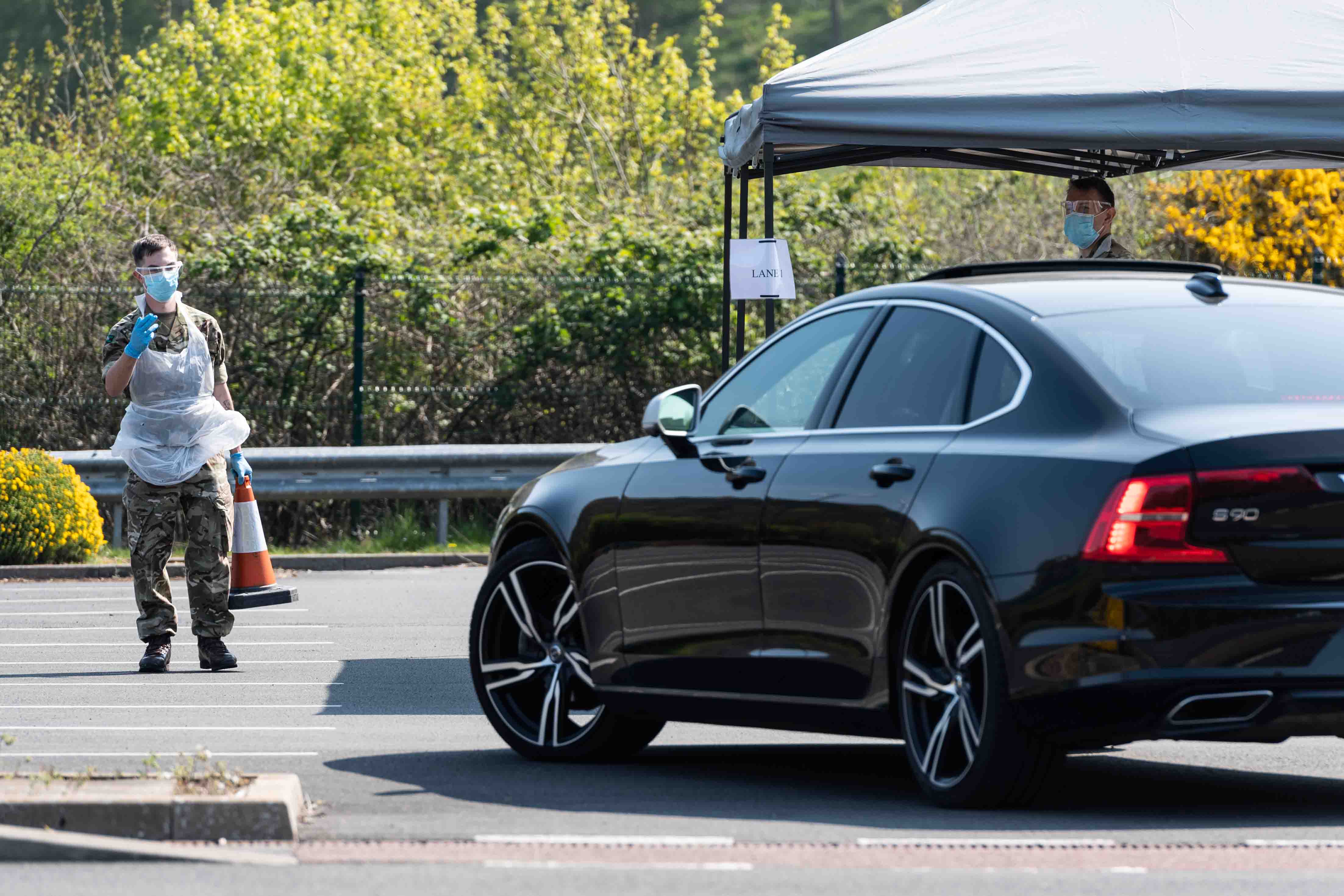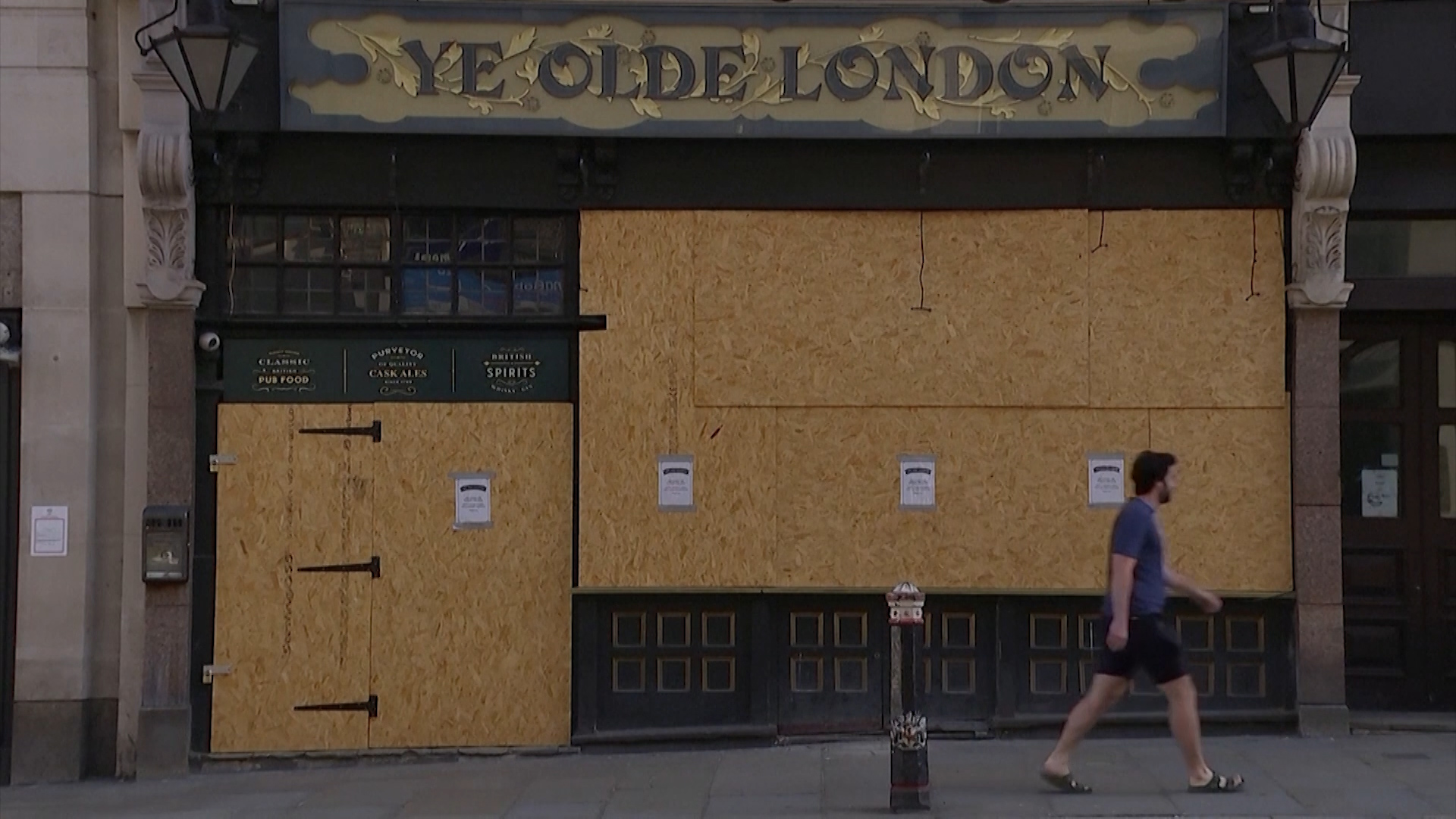Coronavirus: Military Must 'Produce Resilience' To Prevent Biological Attack
A former commander of the UK’s counter chemical and biological warfare regiment has warned the coronavirus pandemic has raised the risk of terrorists attempting a biological attack.
Hamish de Bretton-Gordon has called for the UK to put biosecurity alongside threats like cyber-security as it reviews its defence strategy and resources.
"I think what the world has seen and also those who would have us harm, terrorists in particular, quite how effective a biological pathogen can be, and no doubt will be looking to see how they can use it," he said.
"Therefore, we in the military must now produce resilience and mitigation to make sure that doesn’t happen.
"Biological security has been the poor neighbour of cyber particularly recently, but COVID has changed all that."
Ten weeks into lockdown, the UK’s coronavirus restrictions have been eased.
Regarded by some as the worst disruption to British life since the Second World War, it is still not over.
More than 38,000 people have lost their lives, while others have endured battles with severe illnesses.

It is thought the cost to UK taxpayers is as much as £300 billion.
There are concerns the devastation makes COVID-19, or something similar, look like an effective weapon.
Almost all scientists agree the pandemic originated in Wuhan, China, where the first cases were reported.
Many believe a live animal market was the most likely source, with the virus having been passed from a bat or pangolin to a human before its rapid transmission across the globe.
The city’s virology lab has come under suspicion from some - particularly from political figures including US President Donald Trump - suggesting it may have released the virus accidentally, or even deliberately.
The lab’s director, however, firmly denied this and said: "The outbreak in Wuhan was unexpected.
"Under the leadership of the Communist Party of China, Wuhan people have been making all out efforts to fight the virus and save lives."
The virus’ origins make no difference to its devastation.
Whether another pandemic is natural or man-made, more effective preparation is key.
Mr de Bretton-Gordon said: "This was a shock to everybody; we’ll learn an awful lot from it.
"There are really three silver bullets, I think, in reducing the likelihood of a pandemic or biological attack really badly affecting us.
"First of all, it’s the control of data, and that’s where the link with cyber is and as we well know, the seven days of data lost when the virus first appeared in Wuhan, in effect allowed the virus to travel around the world.

"Secondly, it’s the medical countermeasures and, it might sound rather trite to say, but if there’s money available then the medical countermeasures will be produced.
"So there is a great intelligence effort across the biological community and intelligence community to work out what is the next pathogen, and when we do that, a bit like the flu injection each year, we work out what it’s likely to be and then make the vaccine.
"The third thing, really, is to make sure that we have the right kit available.
"Everybody knows about the PPE, the protective equipment, has been in short supply, or hasn’t worked properly.
"I don’t suppose we and our allies again rely on the Chinese in future for all our PPE, it just doesn’t make sense."
When asked if he thinks the pandemic will radically change thinking on the security strategy and defence review part of the comprehensive review planned by the government, Mr de Bretton-Gordon said: "Well I think it probably will, on a number of fronts.
"But the key thing is, I think, the military must show that we are prepared for this, be it a pandemic or be it an attack because if any adversary sees that we are prepared, they are going to be less likely to use it."
That integrated defence review has been delayed over the pandemic.
It already had competing priorities for investment in new technologies.
Another priority will now have to be balanced, in even tougher financial times.









